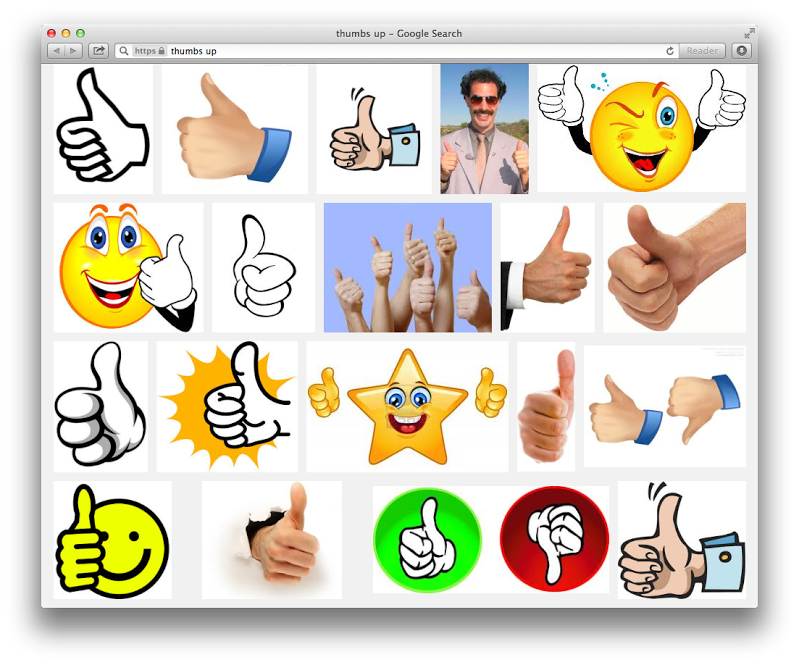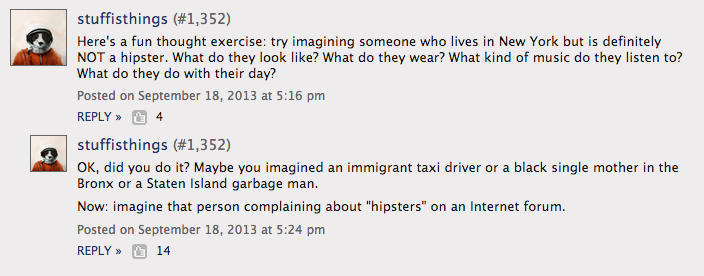The web’s worst neighborhood is the comment section. It fuels a belief that you’re involved in someone else’s efforts, that you have some valuable expertise — with in an inverse ratio of knowledge to input. Tolerated because the web is supposed to be a social experience measured on clicks and comments.
With every project ventured, artwork created, idea attempted, year grown older — I’ve become less critical of makers. Initiating takes effort. Knee-jerk reactions require none. My perspective has shifted from “I could do that better (if I tried)” to “I have no idea how hard this must have been.”

The ‘The Unconsulted’ segment of Paul Ford’s The Web Is a Customer Service Medium essay comes to mind with every new project with a social component:
If you tap into the human need to be consulted you can get some interesting reactions. Here are a few: Wikipedia, Stack Overflow, Hunch, Reddit, MetaFilter, YouTube, Twitter, StumbleUpon, About, Quora, Ebay, Yelp, Flickr, IMDB, Amazon.com, Craigslist, GitHub, SourceForge, every messageboard or site with comments, 4Chan, Encyclopedia Dramatica. Plus the entire Open Source movement. If you spend more time on sites like those listed here than you do reading books, watching TV, or visiting sites like ESPN.com or NYTimes.com, then, like me, the web is now your native medium.
Then there’s YouTube. It was created so that anyone could upload and distribute videos. So that’s one level of Why Wasn’t I Consulted? — to hell with TV, people should look at me! The site has comments, so people can discuss the videos — a second level of WWIC. But there are now also thumbs-up/thumbs-down icons so that you can rank the comments and the video, a third level of WWIC.
Once you see that third level, a website is complete. You’re down to the bedrock. A boolean or integer value is the digital equivalent of a grunt. You can’t get any more basic than a like, or a thumbs-up, or a favorite.
(I recommend listening to the audio version at the beginning of this very good episode.)
When we share, what do we expect? Ford says we’ve boiled it down to grunts — likes, +1s, stars, favs, thumb up, RTs, etc. Does the grunt have any real value? Does the grunt deserve our attention? How many grunts is enough grunts? Harumph!
I wonder about the best possible outcome of someone’s gut-reaction commentary?
-
“I hate you.”
“Ok, I will change.”
Do people want failure?

—Amazing. Via I Am An Object Of Internet Ridicule, Ask Me Anything comment section.
My point: Be aware of the impulse to spend your time consuming, consulting and editing the work of others. It eats entire days, so much so that you never make your own marks. I catch myself at it too often.
“Everybody loves to think of the title, not a lot of people are willing to write the book.”
—Via a Humans of New York caption